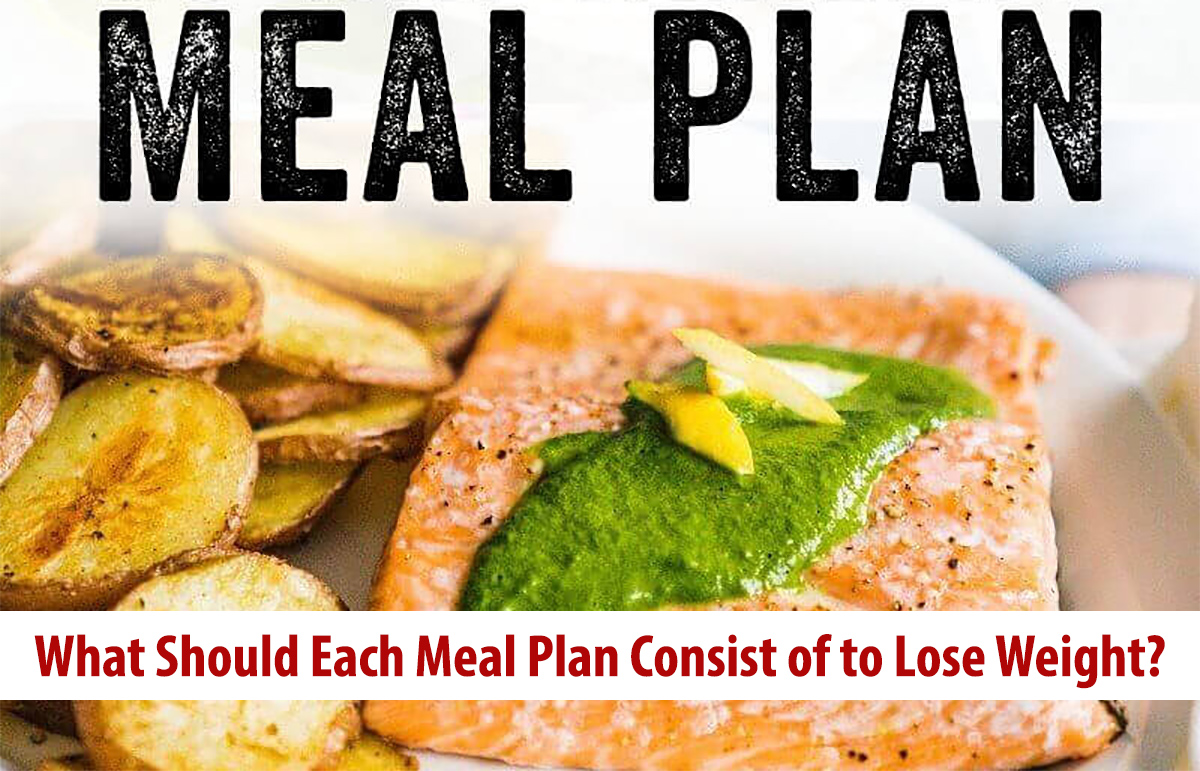What should each Meal Plan Consist of? To lose weight, choose meals that contain protein and fiber-rich foods. Eat a variety of fruits and vegetables. Depending on your personal tastes, you can choose canned, frozen, or fresh fruits. Avoid canned fruit that contains added sugar or syrup. Try canned fruit that comes in its own juice. For added fiber and vitamins, include whole grains.
Protein- and fiber-rich foods
Incorporating protein and fiber-rich foods into a meal plan to lose weight can help you achieve your goals. Fiber promotes regular bowel movements and reduces cholesterol. Protein is essential to a healthy diet, but too much protein can actually increase cholesterol levels. Therefore, maintaining a balance between protein and fiber is essential. Here are some of the best foods for losing weight:
Eggs are an excellent source of protein and fiber. Eggs are low-calorie, but packed with proteins. Eating eggs along with whole-grain bread is also an excellent option. Fiber and protein-rich foods are great sources of vitamins and minerals. Adding some fruits to your daily meals is also a great way to include them in your weight-loss meal plan.
When choosing proteins and fiber-rich foods for your meal plan to lose weight, remember that they should be eaten in small portions. Protein promotes satiety, which decreases your chances of overeating. Fiber helps you maintain lean muscle tissue and prevents wasting muscle mass. When combined with protein and fiber, a healthy meal plan is sure to be a success!
While protein and fiber-rich foods are beneficial to a meal plan to lose weight, a balanced diet is the best way to burn calories. A high-protein diet will help regulate digestion, increase metabolism and help you stay full longer. Just make sure to include foods with low saturated fat and high vitamins. You’ll feel full and satisfied much longer. You can combine this plan with your favorite workout class to lose weight.
Choosing a protein and fiber-rich meal plan is a great way to get your daily dose of vitamins and minerals. You can also use protein and fiber-rich foods as snacks throughout the day. For breakfast, you can have two eggs with 4 grams of dietary fiber and an apple. A second great option is cottage cheese, which is packed with 14 grams of protein per 1/2 cup.
Vegetables
Vegetables are a healthy option to include in your diet. Most vegetables are low in calories and contain filling fibre. This fiber will help you feel full longer and less likely to snack between meals. They also contain a lot of water, so they can fill your stomach and help you avoid overeating. If you are interested in losing weight, including plenty of vegetables in your diet is an excellent idea.
Studies have shown that increasing the intake of vegetables can significantly lower your body’s fat content. Consuming enough vegetables can help people with diabetes maintain stable blood sugar levels. According to Christie Gagnon, a registered dietitian, a study in 2006 linked lower vitamin C levels with higher body fat. People who ate sufficient amounts of vitamin C burned up to 30% more fat during moderate exercise.
The University of Maryland Medical Center recommends that vegetarians include vegetables in their daily diet. Men’s Total Fitness advises eating nine servings of fruits and vegetables each day. In addition to these healthy food options, vegetables should be included in every meal plan to lose weight. The University of Maryland Medical Center suggests eating a low-fat all-vegetable diet. A diet rich in vegetables contains many nutrients and is easy on the body.
Low-calorie diets
The use of low-calorie diets for weight loss has several risks. The first is that a low-calorie diet reduces the amount of protein in the body, which decreases active metabolic tissue. Consequently, the body uses fewer calories at rest, which can lead to obesity. Second, protein loss is harmful to the vital organs of the body. Combined with the risks of obesity, low-calorie diets are not recommended.
Moreover, low-calorie diets may cause a yo-yo effect. People undergoing surgical procedures may not be able to adhere to the diet plan because they experience weight regain. In addition, a low-calorie diet that limits the amount of calories consumed must be rich in proteins of high biological value. These proteins play a role in the regulation of metabolic hormones. A study on the Atkins diet found that women lose the most protein on the first two days. However, the protein loss decreased after two days.
However, reducing calories too severely can have many detrimental effects on health. It can lead to nutrient deficiencies, fatigue, and decreased RMR. While losing excess body weight has several benefits, low-calorie diets are rarely a healthy long-term solution. Moreover, it is best to follow low-calorie diets under the supervision of a qualified healthcare provider. This way, you can have long-lasting results and avoid the harmful effects of very low-calorie diets.
Besides this, low-calorie diets also encourage metabolic changes. They conserve energy and reduce the amount of food burned. In addition, they lead to increased appetite and make weight maintenance more difficult. This is why they aren’t recommended for weight loss. There are other risks, too. Some people may regain their weight more than others. For this reason, it’s important to eat healthy food and exercise regularly to maintain a healthy weight.
Therapeutic lifestyle change diet
If you’re overweight, the best way to lose weight is by making a few changes to your diet and lifestyle. The Therapeutic Lifestyle Change (TLC) diet plan has been shown to reduce the risk of a number of health issues. In one randomized clinical trial, 300 people were divided into two groups: half of the participants used the TLC plan to lose weight, and the other half waited for six months before beginning the program. In both groups, participants learned the importance of a healthy diet and lifestyle. Additionally, they reduced their saturated fat intake and increased their physical activity.
A TLC program is a set of tools, diet information, and ideas to help you reduce your risk of heart disease and other diseases. A TLC meal plan focuses on lower dietary cholesterol, saturated fat, and trans fat. An effective TLC program will include a workshop or online course. Participants will dive deep into healthy lifestyle changes. They will learn to make smart food choices and eat more fruits and vegetables. By the time they complete the program, they will have reduced the risk of heart disease.
The TLC diet is tailored to a specific patient’s needs. It focuses on healthy, balanced meals that will increase energy, mood, and participation in recreational and social activities. In addition, it will improve your overall emotional well-being. The Wilmington Adult Medicine team also offers customized therapeutic lifestyle change diet plans for patients of all ages. If you’d like to learn more, contact us today to get started! Our Wilmington team of physicians offers personalized therapeutic lifestyle change diet meal plans designed to meet your specific needs and lifestyle.

